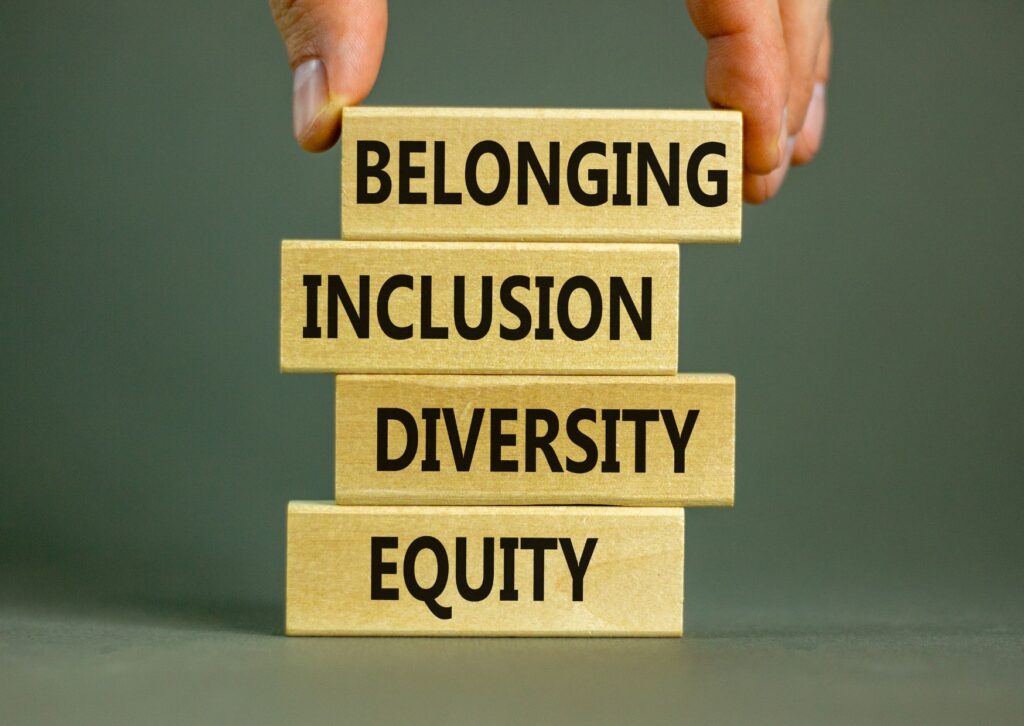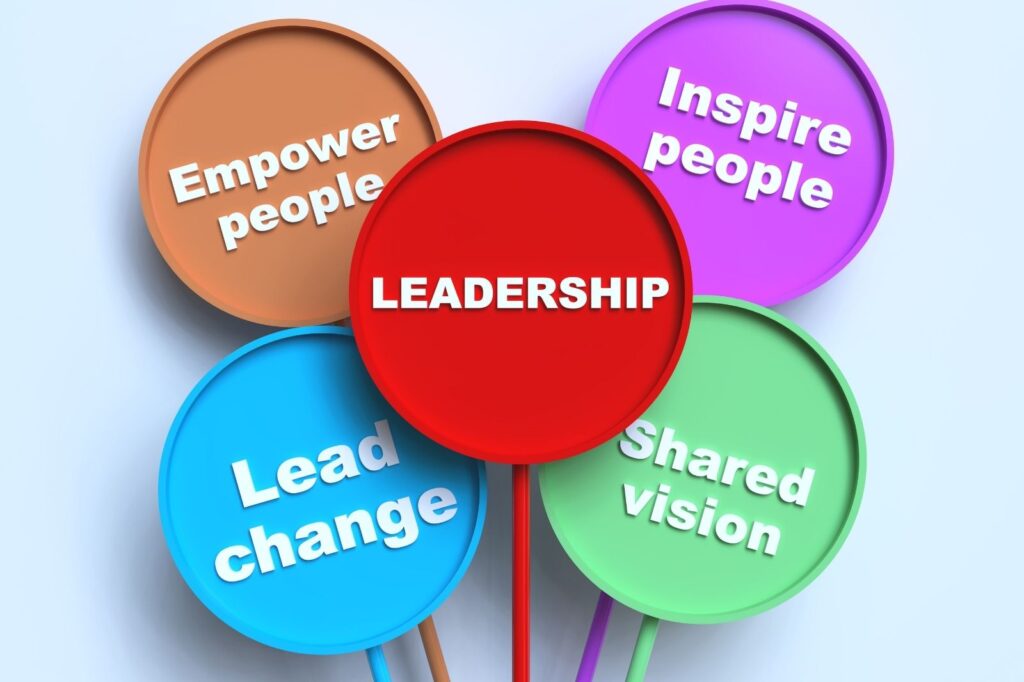How the Top Fintech Companies are Supporting Employee Wellbeing
Welcome to the exciting world of fintech, where innovation isn’t just about finance and technology, but also about creating thriving workplaces.
This blog dives into how top fintech companies are prioritising employee wellbeing, creating a ripple effect that goes beyond their office walls.
From flexible work schedules to wellbeing workshops discover the unique strategies that make fintech a forerunner in employee wellbeing.
Contents
Why is Employee Wellbeing Important in the Fintech Industry?
15 Strategies Top Fintech Companies are Using to Support Employee Wellbeing
How do Fintech Companies Measure the Success of Their Wellbeing Initiatives?
How Does Employee Wellbeing in Fintech Companies Compare to Other Industries?
What is the Role of Leadership in Promoting Employee Wellbeing in Fintech Companies?
What are Some Unique or Innovative Wellbeing Initiatives Implemented by Specific Fintech Companies?

Why is Employee Wellbeing Important in the Fintech Industry?
Fintech sits at the crossroads of finance and technology – two demanding sectors.
The pace is fast, change is constant, and the stakes are high.
This can create a high-pressure environment that could lead to stress, burnout, and mental health issues if not carefully managed.
But there’s more to it. Happy, healthy employees are productive employees.
When employees feel good, they perform better.
They are more creative, they solve problems more effectively, and they collaborate more efficiently.
This means better products, happier customers, and a stronger bottom line for the company.
Moreover, the Fintech industry is competitive, and the race for top talent is fierce.
Offering a supportive, wellbeing-focused work environment can be a game-changer.
It helps attract the best minds, retain key talent, and build a reputation as a great place to work.
Finally, Fintech companies, with their innovative, forward-thinking ethos, are perfectly positioned to lead the way in employee wellbeing.
By creating a work culture that values and supports employee wellbeing, Fintech companies can set an example for other industries, making a positive impact far beyond their own offices.
Prioritising employee wellbeing isn’t just good ethics – it’s smart business.
It’s a win for employees, a win for companies, and ultimately, a win for the Fintech industry as a whole.

15 Strategies Top Fintech Companies are Using to Support Employee Wellbeing
Wellbeing Workshops
Fintech companies understand the value of holistic employee wellbeing. As a part of this, many organise wellbeing workshops addressing various aspects of physical and mental health. These workshops can focus on areas like stress management, employee health, creating positive habits, and more.
They provide employees with practical tools to manage both personal and professional challenges.
Moreover, they create a platform for open discussion about wellbeing, shattering stigmas and fostering a supportive, understanding workplace culture.
By investing in such workshops, fintech companies demonstrate a commitment to their employees’ health and happiness, which can boost morale and productivity in return.
Flexible Work Schedules
In a fast-paced industry like fintech, maintaining a healthy work-life balance is crucial.
Recognising this, many fintech companies offer flexible work hours.
This flexibility allows employees to tailor their work schedules to their personal needs and responsibilities.
Whether it’s picking up kids from school, attending a midday fitness class, or managing a personal commitment, flexible hours empower employees to balance their work and personal lives more effectively.
This approach reduces stress, increases job satisfaction, and can lead to improved productivity and loyalty.

Remote Work Opportunities
The modern workplace is evolving, and fintech companies are at the forefront of this change.
Remote work is no longer just an exception; it’s becoming the norm.
Fintech firms are harnessing digital technologies to facilitate effective remote working.
This flexibility reduces the stress of commuting and offers employees a better work-life balance.
Some companies offer wellbeing webinars as a virtual way to support remote staff.
Moreover, it allows companies to tap into talent irrespective of geographical boundaries.
With the right support and resources, remote work can boost employee satisfaction and productivity while reducing operational costs.
Fitness Programs
Physical health plays a pivotal role in overall wellbeing.
Many fintech companies acknowledge this by offering fitness programs. This could include subsidised gym memberships, organised fitness challenges, or wellness allowances for employees to spend on their preferred form of exercise.
Some companies even have on-site fitness facilities or offer virtual workout classes.
By promoting physical health, fintech companies help employees reduce stress, improve their energy levels, and increase their overall wellbeing, which can contribute to better work performance.

Healthy Meal Options
Nutrition is a key aspect of health, and fintech companies are taking note.
Some firms provide healthy meals or snacks in the workplace or offer meal delivery services to remote workers.
These initiatives not only ensure that employees have easy access to nutritious food but also show that the company cares about their health.
Providing healthy food options can boost employee energy levels, improve focus, and contribute to overall wellbeing.
Mental Health Support
Mental health is an integral part of employee wellbeing.
Forward-thinking fintech companies provide resources to support employees’ mental health.
This can include access to counselling services, mental health days off, or subscriptions to mindfulness and relaxation apps.
By openly addressing mental health, companies help to reduce stigma, promote open conversation, and create a supportive workplace environment where employees feel valued and understood.

Ergonomic Workspaces
Fintech companies invest in ergonomic furniture, adjustable standing desks, and other equipment to create a comfortable and safe working environment.
Whether in the office or by providing allowances for home office equipment, these initiatives can help prevent work-related musculoskeletal disorders and increase productivity.
Career Development Opportunities
Fintech companies often provide a range of training and mentorship opportunities to support career advancement.
They may also offer leadership programs, skill development workshops, or sponsor further education.
These initiatives help employees feel valued and invested in, which can boost morale, motivation, and job satisfaction.
Financial Wellbeing Programs
Fintech companies are uniquely positioned to offer financial wellbeing programs due to their financial expertise.
They provide resources and education on topics like retirement planning, investment advice, and debt management.
These programs empower employees to take control of their financial health, reducing stress and increasing satisfaction.
By providing financial wellbeing support, fintech companies not only leverage their core competencies to benefit their employees but also foster a workforce that is financially savvy and less stressed about money matters.
Encouraging Regular Breaks
Encouraging regular breaks during the workday is a simple yet effective strategy to help employees recharge and reduce stress.
Studies show that short, regular breaks can improve productivity and creativity.
Some fintech companies take this a step further by creating dedicated relaxation or break areas in the office, complete with comfortable furniture, games, or even meditation spaces.
For remote workers, companies may encourage digital detox breaks, where employees step away from screens to refresh their minds.

Promoting Open Communication
Open, transparent communication is a cornerstone of a healthy workplace.
Fintech companies foster such an environment by implementing regular town halls, feedback sessions, and maintaining an open-door policy.
These platforms allow employees to voice their opinions, share ideas, and feel heard. They also provide leadership with valuable insights into employee sentiment, ideas for improvement, and potential issues before they escalate.
This fosters trust, boosts morale, and contributes to a positive work environment.
Implementing Recognition Programs
Recognising and rewarding employees for their hard work and achievements is crucial in maintaining high levels of morale and job satisfaction.
This recognition can come in various forms – from a simple shout-out in a team meeting, to awards or bonuses, to opportunities for career advancement.
By acknowledging employee efforts, fintech companies foster a culture of appreciation, which can boost motivation, increase engagement, and reduce employee turnover.

Community Involvement
Many fintech companies encourage their employees to get involved in community service or corporate social responsibility programs.
This could range from volunteering at local charities, to participating in fundraising events, to implementing sustainable practices in the workplace.
Such involvement not only benefits the community but also gives employees a sense of purpose and fulfillment beyond their regular work responsibilities.
Employee Assistance Programs
Fintech companies often provide employee assistance programs (EAPs) as part of their commitment to employee wellbeing.
EAPs offer support for a wide range of personal issues that could impact an employee’s wellbeing or work performance, such as legal advice, eldercare assistance, or help with personal crises.
By offering such programs, companies demonstrate their support for employees’ personal lives, not just their work performance.
Inclusive Culture
Fintech companies are striving to build a culture that respects and celebrates diversity in all its forms.
They understand that an inclusive work environment fosters a sense of belonging, encourages diverse perspectives and ideas, and contributes to employee wellbeing.
Efforts in this area could include diversity and inclusion training, policies that prevent discrimination and harassment, and celebrations of different cultures and identities.
By fostering an inclusive culture, fintech companies are building a happier, more engaged, and more innovative workforce.

How do Fintech Companies Measure the Success of Their Wellbeing Initiatives?
Fintech companies measure the success of their wellbeing initiatives through various methods, focusing on both quantitative and qualitative data.
The goal is to understand the impact of these programs on employee health, happiness, and productivity. Here are some common ways they track their success:
Employee Surveys
Regular surveys are a great way to gather feedback on wellbeing initiatives. Companies can ask employees about their satisfaction with specific programs, how they have benefitted, and areas for improvement.
By analysing the responses, companies can identify trends, measure progress, and make data-driven decisions.

Wellbeing Metrics
Fintech companies may track metrics like employee engagement, job satisfaction, and absenteeism rates.
These indicators can help determine if the wellbeing initiatives are positively impacting the work environment and overall employee experience.
Retention Rates
A strong employee wellbeing program can contribute to higher retention rates. By monitoring turnover, fintech companies can assess if their wellbeing initiatives are helping to keep their best talent on board.
Performance Metrics
By analysing changes in productivity, sales, or customer satisfaction, companies can gauge the impact of wellbeing initiatives on overall business performance.
Improved employee wellbeing often translates into better work output and higher-quality results.

Anecdotal Feedback
Informal conversations with employees can provide valuable insights into the effectiveness of wellbeing programs.
Open communication channels, like town halls and feedback sessions, encourage employees to share their thoughts and experiences, which can inform future initiatives.
Success Stories
Showcasing employee success stories can be a powerful way to demonstrate the positive impact of wellbeing programs.
These stories can highlight personal transformations, improved work-life balance, or increased job satisfaction and serve as inspiring examples for others.

By using a combination of these methods, fintech companies can measure the success of their wellbeing initiatives, ensuring they’re making a real difference in employees’ lives and delivering a return on investment for the business.
How Does Employee Wellbeing in Fintech Companies Compare to Other Industries?
Employee wellbeing in the fintech sector can vary considerably, just as it does across other industries.
However, fintech, as a fusion of finance and technology, faces unique challenges and opportunities that impact employee wellbeing.
Like other tech industries, fintech is fast-paced, innovative, and often demands long hours from its employees.
This can lead to high-stress levels and the risk of burnout if not well-managed.
Compared to traditional sectors, the intensity and pace of work in fintech can sometimes put more strain on employee wellbeing.

On the other hand, fintech companies also tend to be more progressive in their approach to employee wellbeing.
Being at the forefront of digital innovation, they are often early adopters of modern wellbeing strategies.
For example, fintech firms were among the first to embrace flexible working hours, remote work, and digital wellness tools – trends that have now become widespread due to the pandemic.
Fintech companies, with their expertise in financial products and services, are also well-equipped to support their employees’ financial wellbeing.
They can offer financial wellness programs, providing resources and education that might not be readily available in other industries.
Furthermore, fintech startups, known for their dynamic and disruptive culture, often place a high emphasis on building an inclusive and supportive work environment.
They are likely to invest in creating a positive work culture, with a focus on open communication, recognition, and personal and professional growth.
In conclusion, while the demands of the fintech industry can pose challenges to employee wellbeing, these companies also have unique strengths and opportunities to support their employees’ health and happiness in ways that other industries may not.
As the sector continues to grow and evolve, it has the potential to lead the way in innovative and effective wellbeing strategies.
What is the Role of Leadership in Promoting Employee Wellbeing in Fintech Companies?
Leadership plays a pivotal role in promoting employee wellbeing in fintech companies.
Their actions, decisions, and attitudes can significantly impact the culture of a company, which in turn influences how employees feel at work.
Firstly, leaders set the tone for the company’s approach to wellbeing.
If leaders prioritise and visibly value employee wellbeing, it sends a strong message throughout the organisation.
It tells employees that their health and happiness matter, and it’s okay to take care of themselves.
This can help to reduce stigma around mental health and encourage a culture of openness and support.

Leaders also make decisions about resources and policies that directly affect employee wellbeing.
They can choose to invest in wellbeing initiatives like workshops, fitness programs, or mental health resources.
They can implement flexible work policies, create comfortable and ergonomic workspaces, or provide support for financial wellbeing.
By making these investments, leaders not only support employee wellbeing but also demonstrate their commitment to their employees.
Leadership also plays a crucial role in fostering a positive work environment.
By promoting open communication, recognising employee efforts, and fostering an inclusive culture, leaders can boost morale and job satisfaction, contributing to overall wellbeing.
Finally, leaders can lead by example. When leaders model healthy behaviours – like taking breaks, managing stress, or maintaining a good work-life balance – it sets an example for their employees. It shows that it’s not only acceptable but encouraged to prioritise wellbeing.
In essence, leadership in fintech companies has a significant influence on employee wellbeing.
Through their attitudes, decisions, and actions, leaders can create a work culture that values and supports employee wellbeing.
What are Some Unique or Innovative Wellbeing Initiatives Implemented by Specific Fintech Companies?
There are several fintech companies that have implemented unique and innovative wellbeing initiatives to support their employees.
For instance, Monzo, a digital bank in the UK, has garnered attention for its comprehensive approach to mental health.
Understanding that financial stress can impact mental wellbeing, the company offers mental health training to all staff, so they can better support customers who might be dealing with mental health issues.
Furthermore, they also provide free subscriptions to Headspace, a popular meditation and mindfulness app, to all their employees, promoting mental wellbeing within the team.
Another example is Starling Bank, another UK-based digital bank, which promotes a healthy work-life balance by offering all employees the flexibility to work remotely.

Recognising that the traditional 9 to 5 schedule may not work for everyone, they allow their staff to work when and where they choose, as long as their work is completed.
This not only reduces the stress of commuting but also allows employees to better balance their personal and professional lives.
On the other hand, TransferWise, a global technology company for international money transfers, provides a £4,000 (approximately $5,000) stipend to its employees to support remote work.
The stipend can be used to create a comfortable and ergonomic workspace at home, further supporting the wellbeing of its remote employees.
These are just a few examples of the innovative ways fintech companies are promoting employee wellbeing.
They show that with creativity and commitment, it’s possible to create a work environment that truly supports the health and happiness of employees.

We’ve journeyed through the innovative landscape of fintech, exploring how these pioneering companies are redefining the concept of employee wellbeing.
From fostering flexible work environments to nurturing mental health, they’ve shown us that the key to a successful business lies in the happiness of its employees.
As we sign off, remember that a thriving workplace is not just about hitting targets but also about fostering an environment of support and care.
After all, in the fast-paced world of fintech, it’s not just the technology that needs to be state-of-the-art, but also the approach to employee wellbeing.
Author
Tyler Lowe – Health & Wellbeing Speaker
BSc Sport & Exercise Rehabilitation


